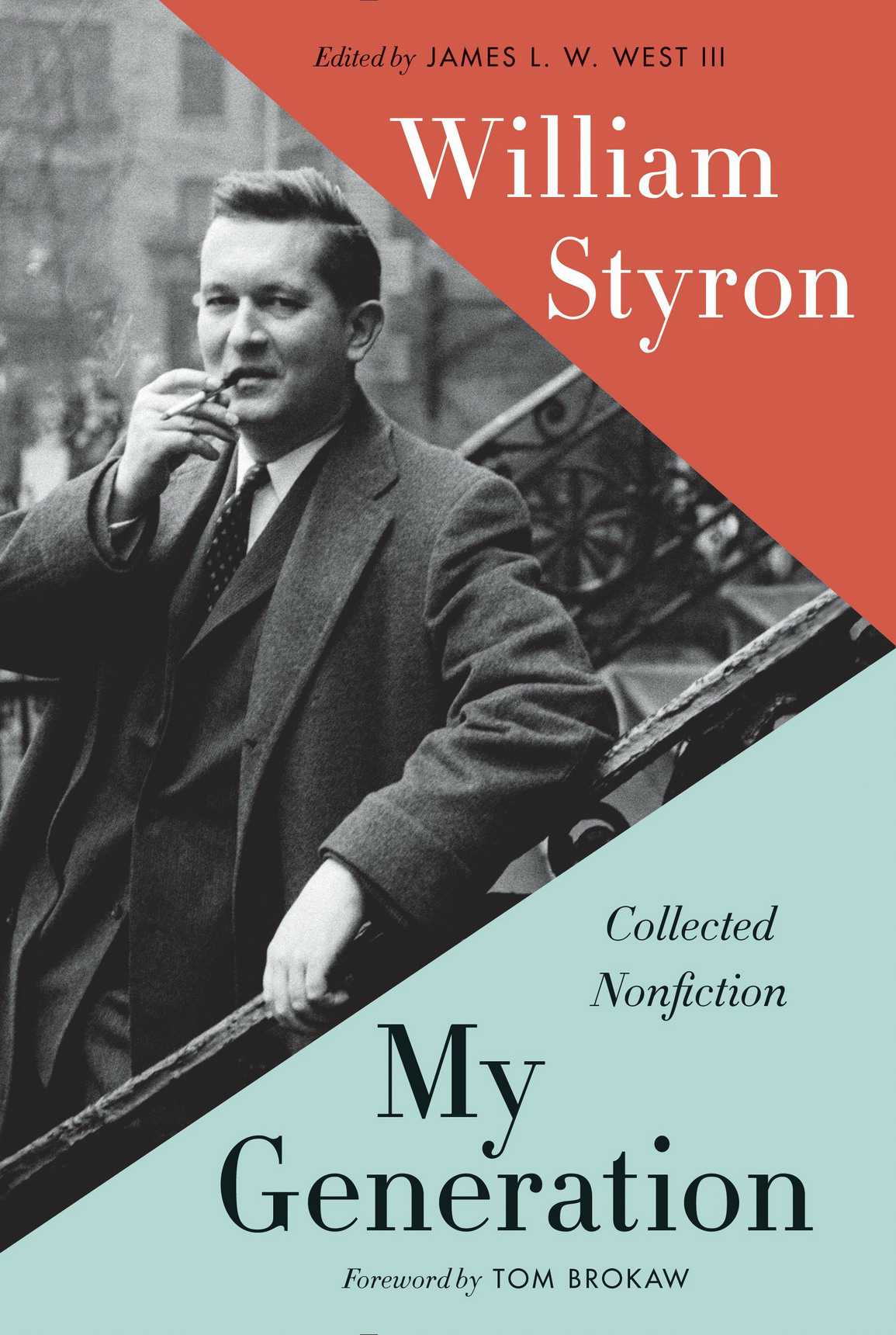
My Generation
Collected Nonfiction
کتاب های مرتبط
- اطلاعات
- نقد و بررسی
- دیدگاه کاربران
نقد و بررسی

April 6, 2015
While West may very well have chosen only to include Styron’s “most important essays, reviews, and memoirs,” as he asserts in his editor’s note, casual admirers of the author may be overwhelmed. Some will undoubtedly feel that less would have been more (91 pieces are included, eight previously unpublished). The entries span a wide variety of topics, including Styron’s reaction to the film version of Sophie’s Choice, his explanation of how the Modern Library editorial board chose the 20th century’s 100 best novels written in English, and his recollection of luminaries such as Robert Penn Warren and Peter Matthiessen. Each is distinguished by Styron’s impressive prose, and many feature brilliantly crafted opening lines that compel further reading (“If the accident of birth caused you to spend most of your early life, as I did, on what is known as the Virginia historic peninsula, you were apt to grow up with a ponderous sense of the American past”). There are too many gems to single any out, and no clunkers, but the book’s length seems likely to discourage readers from picking it up in the first place.

Starred review from March 15, 2015
A rich collection by an estimable writer.In advance of a future collected edition of Styron's (1925-2006) work, West (English/Pennsylvania State Univ.; Making the Archives Talk, 2012, etc.) has selected 92 pieces-essays, reviews, articles, speeches-including eight previously unpublished, which testify impressively to the power of Styron's nonfiction. Winner of a Pulitzer Prize for the Confessions of Nat Turner (1968), a National Book Award for Sophie's Choice (1979), and many other honors, Styron is acclaimed primarily as a novelist, but he contributed regularly to the New York Review of Books, the New York Times, the New Yorker, and many other venues, with pieces notable for their intelligence, verve, and crystalline prose. Born and raised in Virginia, the grandson of a slave owner, Styron devoted many essays to race, and one of his long essays follows "the stormy career" of his novel about the insurrectionist slave Nat Turner, which incited accusations that he was racist. Styron defined his generation-including writers such as Mailer, Baldwin, Salinger, Joseph Heller, and Walker Percy-as traumatized not only by their war experiences and the deployment of nuclear weapons, but by the chilling intimation of future conflicts. After the Korean War, "the cosmos seemed so unhinged as to be nearly insupportable," and he, like others, became mistrustful of power, nationalism, and political hawks. More than a quarter of the collection reflects these views: several essays focus on the Holocaust; one hard-hitting essay profiles a "horribly maimed" Vietnam veteran. Styron marvels that Douglas MacArthur's memoir is "almost totally free of self-doubt." Several pieces reflect movingly on Styron's experience with severe clinical depression. His literary debts emerge in elegies for Faulkner and Fitzgerald, Robert Penn Warren and James Baldwin, Peter Matthiessen and Truman Capote. Wide-ranging, lucid, and incisive.

Starred review from April 15, 2015
One of America's finest novelists also wrote numerous essays, reviews, tributes, and memoirs over the period, 19512001, covered in this collection. If Styron is best remembered for his fictionLie Down in Darkness, The Confessions of Nat Turner, Sophie's Choiceand his harrowing memoir of depression, Darkness Visible, his extensive output of short nonfiction stands as additional testament to his enormous talent and range of interests. His writing on his literary efforts, and those of his contemporaries, is honest, generous, and insightful. His deeply personal style includes historically informed musings about race and the South (especially his beloved Virginia Tidewater). Though criticized for the manner in which he treated racial matters in Nat Turner, Styron sought to grapple with race (and more general evil; he wrote about the Holocaust and My Lai as well as slavery) in a way many other white writers of the period skirted. Regrettably, the book is arranged thematically rather than chronologically, and the editing by Styron's biographer, James L. W. West III, is so unobtrusive that several pieces spread over an active half-century could profit by more explicit context. Still, this is a major addition to our knowledge of one of an impressive literary generation's foremost authors.(Reprinted with permission of Booklist, copyright 2015, American Library Association.)

December 1, 2014
Author of 1998's William Styron: A Life, West collects more than 80 examples of Styron's nonfiction over five decades, with nearly a third never published in book form and seven of those not published at all.
Copyright 2014 Library Journal, LLC Used with permission.

April 15, 2015
West (English, Pennsylvania State Univ.; William Styron: A Life) has edited this hefty collection of Styron's (1925-2006) various essays. It includes all of the pieces from the author's two compilations of nonfiction (This Quiet Dust and Havanas in Camelot), as well as 34 items from op eds, eulogies, speeches, etc., eight of which were previously unpublished. For those who are familiar with Styron primarily for his fiction, this anthology will be a welcome introduction to his memoirs, criticism, and views on American life. His strong likes and dislikes are self-evident in the writings, many of which chronicle how he developed his novels as well as offer tributes to the writers he knew and/or admired. Styron covers in detail the controversy surrounding his portrait of Nat Turner in the novel The Confessions of Nat Turner. His experiences in the military are related, especially his harrowing stay in a marine hospital when it was suspected that he had syphilis (which turned out to be a misdiagnosis). Not all of the inclusions are essential reading; two discussions praising French president Francois Mitterrand could have been reduced to one. VERDICT All in all, an essential book for Styron fans, one that illuminates the man behind the fiction. Recommended for public and college collections. [See Prepub Alert, 11/24/14.]--Morris Hounion, New York City Coll. of Technology, Brooklyn
Copyright 2015 Library Journal, LLC Used with permission.

























دیدگاه کاربران